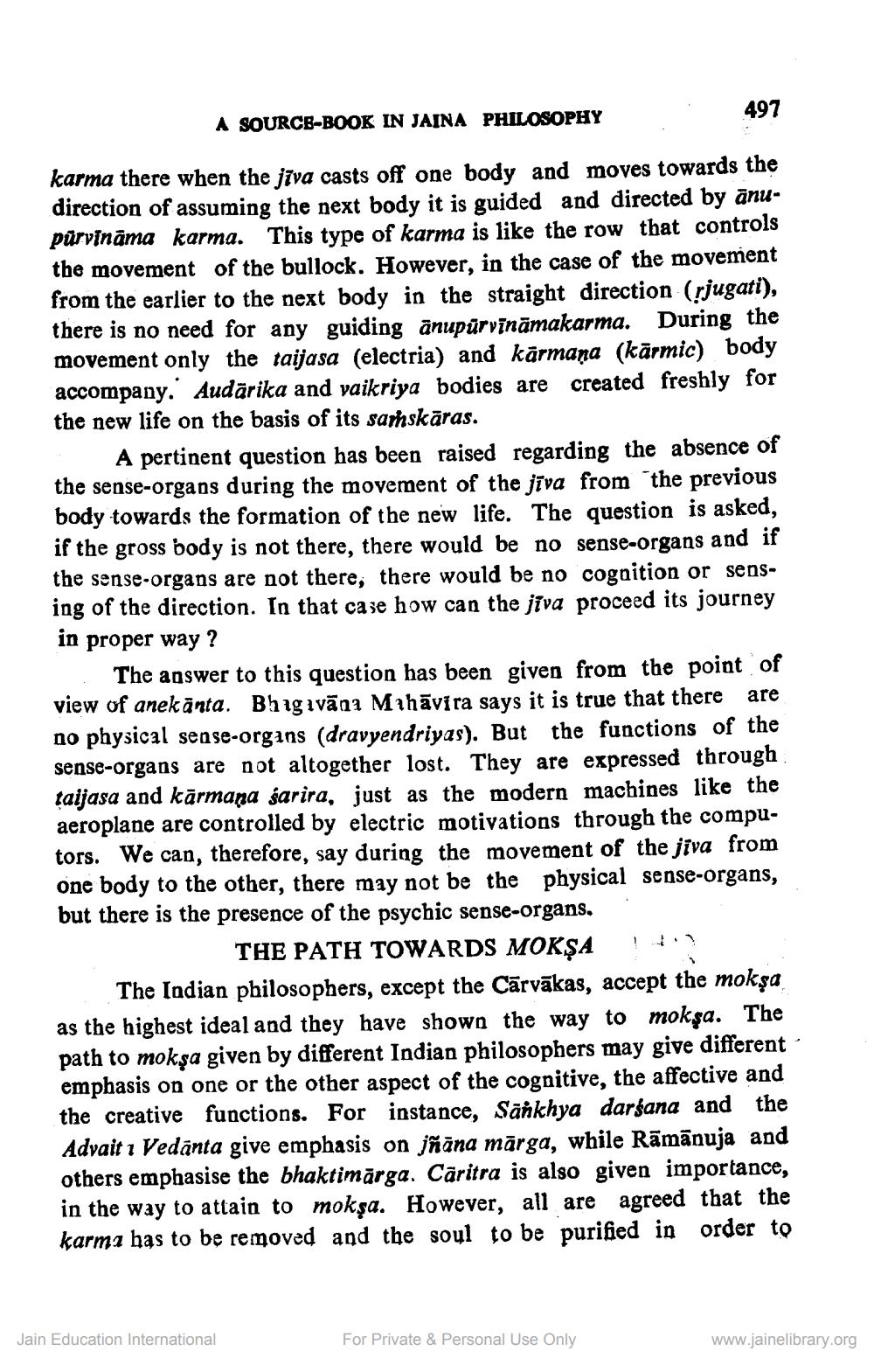________________
497
A SOURCB-BOOK IN JAINA PHILOSOPHY
karma there when the jīva casts off one body and moves towards the direction of assuming the next body it is guided and directed by anupúrvināma karma. This type of karma is like the row that controls the movement of the bullock. However, in the case of the movement from the earlier to the next body in the straight direction (rjugati), there is no need for any guiding anupūrvīnāmakarma. During the movement only the taijasa (electria) and kārmana (karmic) body accompany. Audārika and vaikriya bodies are created freshly for the new life on the basis of its sarskāras.
A pertinent question has been raised regarding the absence of the sense-organs during the movement of the jīva from the previous body towards the formation of the new life. The question is asked, if the gross body is not there, there would be no sense-organs and if the sense-organs are not there, there would be no cognition or sensing of the direction. In that case how can the jiva proceed its journey in proper way?
The answer to this question has been given from the point of view of anekānta. Bhigivānı Mahāvira says it is true that there are no physical sense-orgins (dravyendriyas). But the functions of the sense-organs are not altogether lost. They are expressed through taijasa and kārmana sarira, just as the modern machines like the aeroplane are controlled by electric motivations through the computors. We can, therefore, say during the movement of the jiva from one body to the other, there may not be the physical sense-organs, but there is the presence of the psychic sense-organs.
THE PATH TOWARDS MOKŞA ! ! The Indian philosophers, except the Cārvākas, accept the mokşa as the highest ideal and they have shown the way to mokşa. The path to mokşa given by different Indian philosophers may give different emphasis on one or the other aspect of the cognitive, the affective and the creative functions. For instance, Sankhya darsana and the Advait 1 Vedānta give emphasis on jñāna mārga, while Rāmānuja and others emphasise the bhaktimārga. Caritra is also given importance, in the way to attain to mokşa. However, all are agreed that the karmı has to be removed and the soul to be purified in order to
Jain Education International
For Private & Personal Use Only
www.jainelibrary.org




